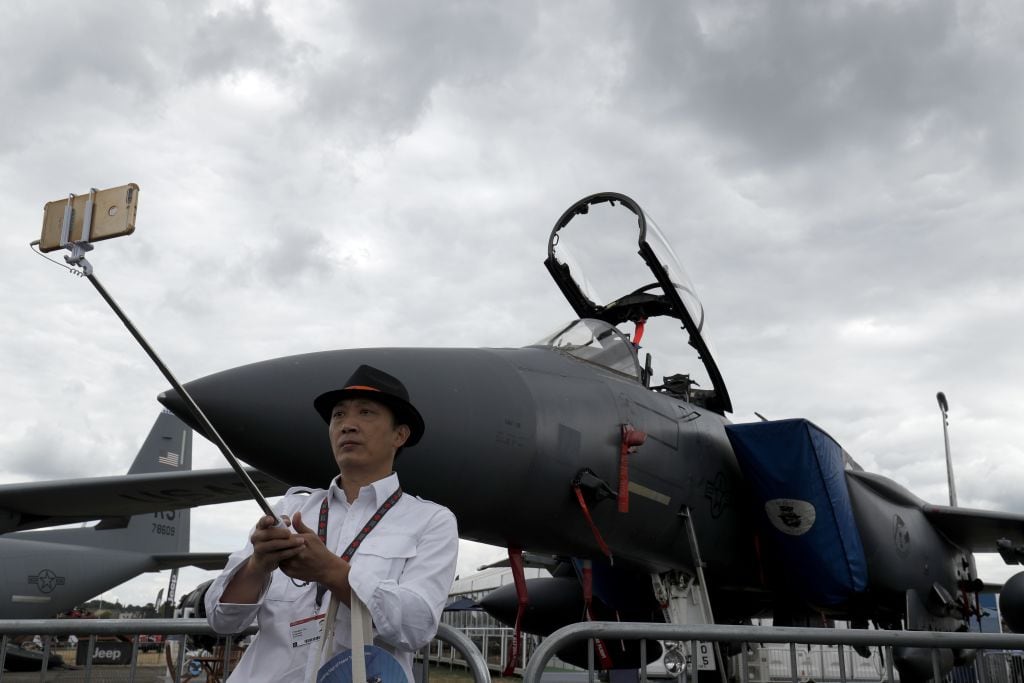WASHINGTON — A top arms sale official believes it is “possible” to get the United Arab Emirates on contract to purchase the F-35 Joint Strike Fighter before the end of the Trump administration.
Speaking to reporters Friday, Heidi Grant, the head of the Defense Security Cooperation Agency, acknowledged that such a timeline is logistically feasible but noted it would likely require quick action from the UAE.
“If you ask if it’s possible, absolutely it’s possible,” Grant said in response to a question about whether the F-35s could be on contract by Jan. 20, when President-elect Joe Biden will be inaugurated. “But we don’t control it. We are waiting on the Congress benchmark, then we are going to wait when we offer it to the Emiratis, and it’s up to them as far as timeline. But it’s possible.”
The “Congress benchmark” Grant mentioned is the end of the congressional notification period required by law for all Foreign Military Sales offers. The DSCA notified Congress of the potential sale on Nov. 10, meaning the notification period will end next week.
RELATED

FMS cases are agreements between a partner nation and Washington, with the Pentagon acting as a go-between for the purchaser and the industrial partner. That means the next step after the notification period ends is the crafting and signing of a letter of agreement between the UAE and the U.S., said R. Clarke Cooper, assistant secretary of state for political-military affairs.
“That is a bilateral process between the United States and the UAE, so that does not have a particularly set timeline,” Cooper said. “Obviously when we work on LOAs, in any case, the partners would certainly like to see them sooner than later, but that does not have date specificity.”
The UAE is seeking a massive $23.37 billion arms package, which includes up to 50 F-35A fighters worth $10.4 billion, 18 MQ-9B drones worth $2.97 billion, and $10 billion worth of air-to-air and air-to-ground munitions. Those dollar totals are estimates and may shift during final negotiations, but it still represents a massive win for American industry — and a political fight on Capitol Hill.
Lawmakers, primarily Democrats, have expressed opposition to the potential sale, saying it ignores risks to sensitive military technology posed by UAE’s ties to Russia and China. And they’re concerns about the threat to Israel’s qualitative military edge, or QME, in the Middle East. The Senate is set to vote next week on legislation to block the sale.
While the sale has been backed by President Donald Trump, there is a belief that the Biden administration may look to block it, and hence there’s a belief in some corners of Congress that the Trump administration is rushing to get the sale done before Jan. 20.
Biden’s pick for secretary of state, Anthony Blinken, told reporters in late October that the deal is “something we would look at very, very carefully, and make sure that the QME is preserved and also very important that Congress play a role.”
In an interview Thursday, Sen. Chris Murphy, D-Conn., said the Trump administration briefing on the sales that he and other members of the Senate Foreign Relations Committee received last month convinced him the sale is being rushed to box in the incoming Biden administration. But he believes the deal, if it’s not defeated in Congress, could be changed by the next president.
“I believe the Biden administration will be able to put additional conditions on sales or hold back weapons, but I haven’t dug into the fine print yet,” Murphy said. “My worry is there are certain sales we will be obligated to make.”
Joe Gould in Washington contributed to this story
Aaron Mehta was deputy editor and senior Pentagon correspondent for Defense News, covering policy, strategy and acquisition at the highest levels of the Defense Department and its international partners.








